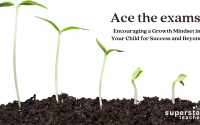Tips To Score Well In Biology Without Pure Memorisation

Biology is one of the most interesting subjects in our educational system. From learning about human anatomy to understanding the complexity of all living things, Biology allows us to be aware of our world and the environment around us. As such, it would not be surprising that your child has chosen to undertake Biology as one of their Pure Science subjects or as part of Combined Science.
If so, you should already be aware that the O-Level Biology examinations are about to begin in just a few weeks’ time. Your child may be going through science revision notes or practising past exam papers in order to revise the subject. However, many students may have the misconception that Biology is all about memorisation. While Biology does require some memorising, your child can still aim to ace the examinations without needing to memorise blindly.
In this article, we have provided tips and tricks on how your child can study smart for their Biology examinations.
Draw diagrams
If your child is a visual learner, they can pick up ideas and abstract concepts better by drawing diagrams and pictures. For example, when it comes to learning about cells, a diagram can be drawn to depict the various parts and their specific functions instead of writing it all down like an essay. In fact, research has found that students who draw diagrams are more likely to score better in their examinations, regardless of whether there are extra marks or not. This makes sense as students have a clearer picture of the concept, allowing them to analyse, observe, and pay attention to smaller details.
Understand the concepts
There is a difference between memorising the content and actually understanding it. For the latter, your child may only gain a brief familiarity with the material by glancing through their notes and texts. This is not an effective study method as your child can easily forget the content and, in the worst-case scenario, may not know how to apply these concepts to their answers during the examination. However, by understanding the concepts, your child no longer has to memorise a large bunch of information and will better retain the material.
Understanding concepts does not have to be complex. Your child can simply seek to explain the material and apply and relate it to real-life situations in order to grasp the ideas. Yes, it takes more time and effort, but once your child has successfully comprehended a concept clearly, they may not need to reread the material again and again.
Utilise active study methods
Active studying basically means organising all the information learnt and connecting them to see the bigger picture. Compared to more traditional and passive study methods, such as memorisation and recitation, active studying encourages students to take a more hands-on approach to their learning. Active studying comes in many forms, though we recommend doing case studies, demonstrations, and discussions for science-related subjects like Biology. Drawing graphs and charts can also be considered active studying.
Over time, your child can construct meanings from texts in a way that is easier to understand and have a more comprehensible idea of how different topics are related. Biology is a broad subject – encompassing many disciplines, some of which are unified with one another. Therefore, active study methods help to tie all the concepts together.
Sign your child up with Superstar Teacher
If you find that your child is still struggling with the subject despite all these tips, you can consider signing them up for Secondary science tuition in Singapore with Superstar Teacher. Since our lessons take place online, your child can learn at their own pace and whenever and wherever they want. This is especially important as we are getting closer to the date of the O-Level Biology examinations. Sign up with Superstar Teacher today to receive a free trial. Our tuition platform offers Secondary Chemistry tuition in Singapore as well, among other subjects.



